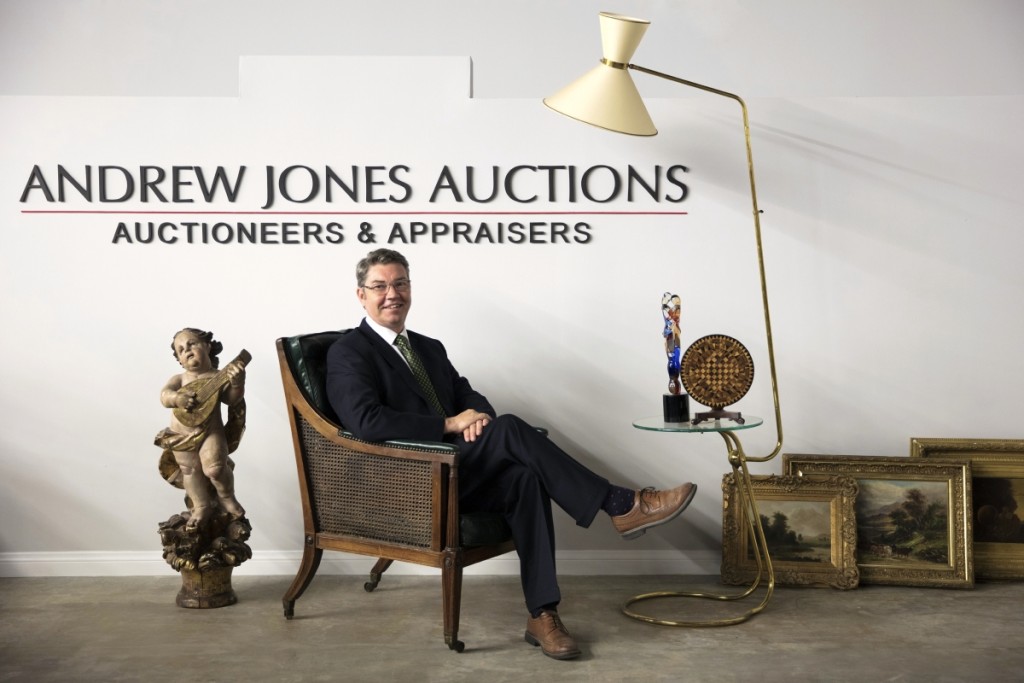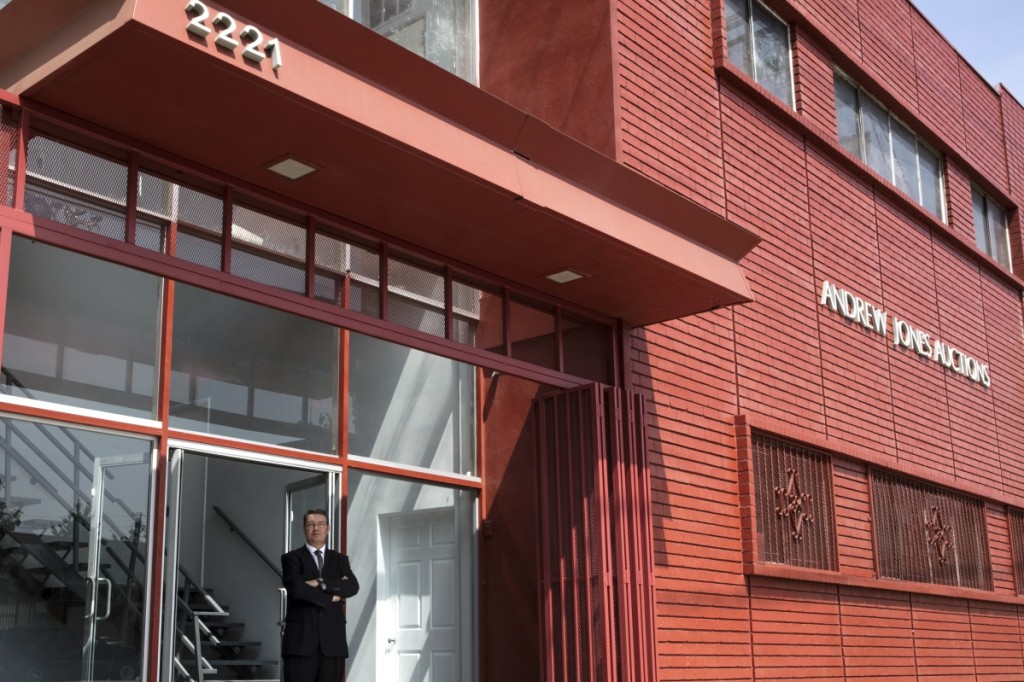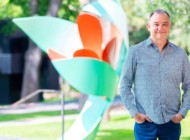 The first item that Andrew Jones sold when conducting his first auction, at the age of 16, was a bunch of carrots. He has come a long way since then. His new company, Andrew Jones Auctions, will conduct its first sale on September 15, in a new gallery in downtown Los Angeles. A lot has transpired between the carrots and today. A native of England, he began his career in the late 1970s at a provincial auction house, G.A. Key, in Norfolk, a company that sold everything from fine art and antiques to produce and livestock. “That was a wonderful way to learn the auction business. In 1982, I left Key’s and started with Phillips in London, and for the next 19 years I worked in various departments there. In 2001, Phillips merged with Bonhams and I went to live and work in California.” He has been there ever since.
The first item that Andrew Jones sold when conducting his first auction, at the age of 16, was a bunch of carrots. He has come a long way since then. His new company, Andrew Jones Auctions, will conduct its first sale on September 15, in a new gallery in downtown Los Angeles. A lot has transpired between the carrots and today. A native of England, he began his career in the late 1970s at a provincial auction house, G.A. Key, in Norfolk, a company that sold everything from fine art and antiques to produce and livestock. “That was a wonderful way to learn the auction business. In 1982, I left Key’s and started with Phillips in London, and for the next 19 years I worked in various departments there. In 2001, Phillips merged with Bonhams and I went to live and work in California.” He has been there ever since.
What prompted your decision to start a new enterprise?
I’ve always wanted to run my own business. My passion is for the “stuff” we deal with. With the major auction houses like Bonhams or Christie’s, the emphasis is, necessarily, on high-value items. That means that a lot of really neat things never get to the auction block in those companies, and buyers sometimes don’t have the chance to see and learn about those things. I wanted to be able to offer a broader selection of things to buyers and present them in fun, interesting ways. I wanted to be able to say to a consignor that we could take it all.
Aren’t there already several auction houses in Los Angeles?
True, there are. But I think there’s always room for one more. Downtown Los Angeles is a rapidly growing neighborhood, with a younger, affluent group of people. Many have little experience with antiques and fine art, and I think we can attract those people. We also have to let seasoned collectors know that we have the background and expertise to present a wide variety of antiques and decorative arts that will appeal to them as well. We’ll be presenting monthly sales, some of which will be themed, and people will get to know us. The key to our success will be our ability to offer a wide breadth of items in all price ranges.
You think of antiques as recycling?
Yes. We’re going to be presenting fresh-to-the market objects in all price ranges, in innovative ways. I think, if we present ourselves properly, we can persuade younger buyers to move away from the “throw-away” approach to things. I hope we can convince them to furnish with vintage items and develop their own “look.” We need to educate those buyers and make it fun for them to learn. We’ll make extensive use of social media to get people to our exhibitions, and we’ll present those as an opportunity to meet people and see interesting things. We have a large, two-level, 35,000-square-foot gallery, and we plan to use that space in several different ways. The gallery will have a dedicated cafe that will help to make attending an auction a fun way to spend an evening or an afternoon. We’ll have a robust website and online bidding on two platforms.
 Who are the other people on your team?
Who are the other people on your team?
Jennifer Kurtz was with Bonhams for 17 years, most recently as director of decorative arts and ceramics. Aileen Ward spent most of the last seven years as director of fine silver and objects of vertu for Bonhams North America. Together with my background in furniture, especially English furniture, we have a group with extensive expertise in several fields. We all have an understanding of today’s market, and we all have experience handling six-figure items and large, specialized collections. We also have extensive contacts within the trade for additional expertise where we feel it’s needed. I believe in the importance of accurate, informative, catalog descriptions, and each of us know how to do that.
How do you see the future?
There’s no doubt in my mind that the antiques market is recovering nicely from the doldrums of a few years ago. Our challenge is to attract new buyers and to show them that antiques are fun, often unique and really, environmentally friendly. Combining that with our ability to cater to established collectors, we have a great future. I think we’ll grow, and as we refine our approach and learn more about what our clientele wants, we’ll create a niche for ourselves in the marketplace.
-Rick Russack, Contributing Editor




